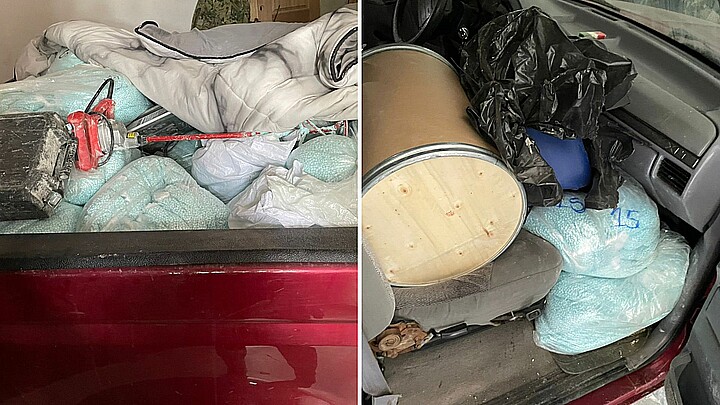Drug trafficking
Report: Mexican cartels launder upwards of $25 billion using bitcoin
The cartels make "online purchases of small amounts of bitcoin, which allows them to disguise the origin of the money and pay their associates in other parts of the world," the INCB notes.
March 11, 2022 2:32pm
Updated: March 11, 2022 3:45pm
A new report released Thursday by the International Narcotics Control Board (INCB) warns that Mexican cartels are increasingly turning to the internet, cryptocurrencies and e-commerce to launder money and sell drugs – laundering up to $25 billion a year using bitcoin in Mexico.
The document produced by INCB, an independent body backed by the United Nations that monitors compliance with international drug treaties, notes that the Jalisco New Generation and Sinaloa cartels are increasingly using small online bitcoin purchases to avoid money laundering controls.
After dividing their profits into small amounts and depositing them in various bank accounts, the cartels make "online purchases of small amounts of bitcoin, which allows them to disguise the origin of the money and pay their associates in other parts of the world," the INCB notes.
"Both Mexican and Colombian organized criminal groups are increasing their use of virtual currencies due to the anonymity and speed of transactions," the study added.
To avoid attracting the attention of banks, criminal organizations carry out operations that do not exceed $7,500. "Criminals often divide the illicit money into small amounts that they deposit in several bank accounts, a technique known as smurfing.”
Similarly, the report notes that free trade zones and gambling companies are also part of some trade operations to launder illicit funds. These trade-based systems act as a parallel method of transferring money and value around the world, according to La Jornada.
The US State Department's 2021 International Narcotics Control Strategy Report indicated that methamphetamine manufacturing, trafficking and consumption have increased in Mexico.
It also states that Mexico continues to be the U.S.’ main source of heroin and methamphetamine, as well as a transit country for cocaine from South America.
In this regard, the INCB warned that there is growing evidence of the link between exposure to social networks and illicit drug use, especially among young people, who are the main users of these media.
The Board called on governments to regulate the use of social media and urged the private sector to moderate and self-regulate its digital media and limit advertising, as well as the promotion of non-medical drug use.
The US Federal Commission to Combat Synthetic Opioid Trafficking reported in February that Mexico is the main source of illicit fentanyl and its analogues marketed in the United States. Mexican cartels manufacture it in clandestine laboratories, using precursor chemicals sourced mainly from China, it added.








